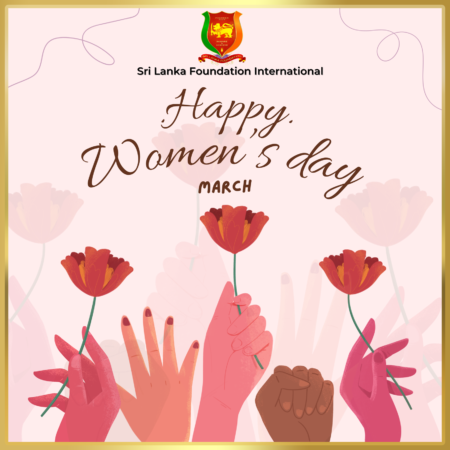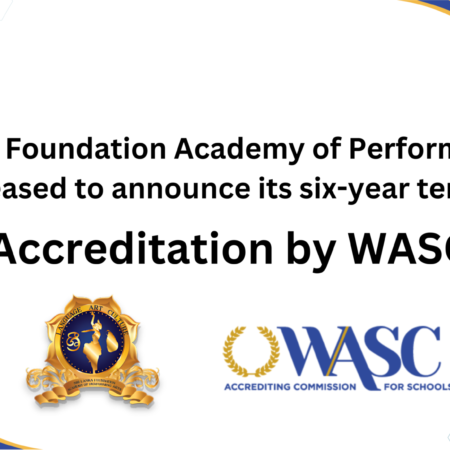http://www.theage.com.au: Two Australian companies are embroiled in bribery scandals that reach into the offices of the presidents of Sri Lanka and the Republic of Congo, as the firms sought to secure multi-million dollar contracts.
Coming in the wake of foreign bribery allegations implicating Tabcorp, Leighton Holdings and BHP Billiton, the revelations will put pressure on the Turnbull government to reform Australia’s failing anti-corruption framework.
A Fairfax Media and 7.30 investigation has uncovered internal documents from Perth-based listed mining company Sundance Resources that suggest it bribed the leader of the Republic of Congo as it sought presidential approval in 2007 for one of Africa’s most ambitious iron ore projects.
The documents, now being evaluated by the Australian Federal Police (AFP), reveal a secret share deal worth millions of dollars was brokered with the son of Congo’s despotic president, Denis Sassou Nguesso. In return, the company allegedly secured the President’s backing for its project. Sundance has launched an internal inquiry into the claims.
A Fairfax Media investigation has separately uncovered evidence – which is the subject of a major AFP probe – involving the iconic Snowy Mountains Engineering Company (SMEC).
The firm’s overseas staff allegedly bribed officials to secure a $2.3 million aid-funded sewerage project in Sri Lanka in 2011 and, in partnership with a Canadian company, a $2.2 million power plant project in Bangladesh in 2007.
Company emails also reveal Sri Lankan President Maithripala Sirisena and his adviser allegedly demanded a political “donation” to be paid by SMEC when Sirisena was a cabinet minister.
The emails show a plot to skim the money off a World Bank-funded dam project in 2009. In return, Sirisena was to approve the awarding of the dam contract to SMEC, worth $1.82 million .
SMEC’s Sri Lankan manager, who was recently sacked, wrote in emails to two Australian colleagues that he wanted to “inform the minister/co-ordinating secretary” of the size of an alleged kickback to be paid and that he needed to “prioritise” certain payments to unnamed parties “since the signing of the contract would depend” on it.
SMEC has confirmed a “request for a political donation”, but insists an internal investigation found no donation was made and the firm “continues to fully cooperate with the AFP.”
Australia prides itself on being a clean place to do business, but revelations by Fairfax Media and others over a decade show that many companies agree to corrupt practices in developing countries.
The government gave the AFP an extra $15 million in April to fight corporate bribery after Fairfax Media revealed the global Unaoil bribery scandal, which involved construction giant Leighton Holdings, and allegations that Tabcorp bribed the sister of Cambodia’s president.
Under Australia’s existing corporate crime regime – plagued by weak whistleblower protections and laws – the likelihood is that most accused firms will avoid prosecution.
Former NSW Supreme Court Judge and chair of anti-graft NGO Transparency International, Anthony Whealy, QC, urged the Turnbull government to urgently fix Australia’s corporate whistleblower regime and do more to get companies to co-operate with authorities.
Federal police only discovered the Sundance allegations when told by Fairfax Media. World Bank corruption investigators had alerted the AFP to evidence of bribery involving SMEC in late 2013.
The AFP’s top corporate crime investigator, Peter Crozier, urged CEOs and the public to realise that corruption robs the world’s poorest people and benefits the corrupt elite.
Prosecutions in Australia remain elusive, he said, but the AFP was pushing for new ways to encourage companies to self-disclose, whistleblowers to co-operate and corporate Australia to champion an anti-corruption culture.
“The companies themselves, and their CEOs they both have a legal responsibility, but they [also] have a moral and ethical responsibility here to show some integrity in their business processes.”
Secret Congo share deal
Sundance Resources’ Mbalam‐Nabeba Iron Ore Project, on the border of Cameroon and the Republic of Congo, was visited by tragedy in 2010 when its chairman, Ken Talbot, and the company’s entire board died in a plane crash while on business.
The mine has been touted as one of Africa’s biggest iron ore ventures, capable of transforming the struggling Congolese economy and paying huge dividends for shareholders of the ASX-listed miner.
But internal Sundance files tell a darker story of shady middlemen and alleged bribery benefiting the family of Congo’s most powerful man.
In mid-2006, Sundance Australian executives dispatched agents to Congo to secure exclusive mining licences for jungle-covered land near the Cameroon border.
A July 2006 report by Sundance’s African agents sent to the Australian firm says it is “is very clear” the project would only go ahead with the backing of “Head of State,” President Denis Sassou Nguesso.
Company files reveal that the agents then brokered a deal potentially worth millions of dollars with the president’s son and nephew, who demanded they be given a large parcel of shares in Sundance’s proposed Congo subsidiary.
“Denis [-Christel] Sassou Nguesso [the president’s son] was delighted by the project, but clearly had a problem with the shareholders standing that was proposed to the Congolese side in this deal.”
“Unless we give them [the Nguesso government] a good reason to do this project with us, they would want to … do the project with the Chinese,” the confidential July 2006 report states.
Sundance agreed to give a one-third stake in its Congolese subsidiary to the president’s son and nephew in late 2006 and later swapped some of those shares for a multi-million dollar shareholding in its listed Australian company.
In August 2007, President Sassou Nguesso personally signed off on two exclusive mining permits for Sundance, which the company’s agents attributed to “our relations and network in Congo.”
Sundance told the ASX in 2008 that it would issue several large tranches of its Australian shares, worth up to $13 million, to unnamed Congolese shareholders. Internal files reveal the beneficiaries as “Denis [-Christel] and Rodrigue,” the President’s son and nephew.
The President and his son, have been investigated by international NGOs and French authorities over human rights abuses and alleged corruption, with French corruption investigators in 2009 uncovering the family’s ownership of luxury cars and real estate in Paris worth millions.
The AFP said it is evaluating the case and takes “these allegations very seriously.”
A Sundance spokesman said after being contacted by Fairfax Media, the firm “has commissioned an independent party” to conduct a “thorough assessment”.
Snowy Mountains and the president
On September 12, 2013 World Bank investigators sent a confidential file to the federal police alleging the SMEC was engaged in suspected “fraud and corruption” in connection to a power plant project in Bangladesh in 2007.
This prompted a secret federal police probe, which dug up another bribery allegation involving SMEC’s involvement in an aid-funded sewerage project in Colombo in 2011.
In April last year, startled locals from Cooma, a picturesque town 100 kilometres south of Canberra, watched on as federal agents launched a surprise raid on SMEC’s headquarters.
SMEC’s origins are in the Snowy Mountain Hydro Scheme. Following its privatisation in 1993, the company grew to become a global engineering giant with 5400 staff in dozens of countries.
SMEC has previously faced corruption allegations after it sacked longstanding CEO Jack Boniface in 2001 over the use of his expense account. Boniface unsuccessfully sued the firm for unfair dismissal in 2007 but, in doing so, revealed that to win contracts, he was involved in the “payment of bribes to government and other officials.”
In addition to the World Bank inquiry, internal company emails reveal bribery allegations involving a second Sri Lankan contract, a dam project also funded by the World Bank. Emails from SMEC’s recently sacked Sri Lankan manager to two Australian colleagues detail an alleged meeting in 2009 with Sri Lanka’s president Sirisena, who at the time was minister for Agriculture, Development and Agrarian Services.
SMEC’s manager wrote on June 3 that Sirisena, who was also “secretary of the ruling party – a powerful man in the present administration”, may request “something out of the way – funds for the party”.
SMEC needed Sirisena to sign off on cabinet papers approving the award of the $1.82 million dam project. Two days later, SMEC’s manager wrote another email to his colleagues about his meeting with Sirisena.
“He said there will be elections in the near future and he wants to know whether SMEC could make a donation for the elections. He [Siresena] detailed me to discuss this with his Co-ordinating Secretary. Co-ordinating-Secretary said this is the way it goes prior to signing the cabinet papers. He wants us to propose an amount/percentage on the contract value. If you could advise me on an amount of percentage based on the financial figures I could inform the minister/ Co-ordinating Sec …”
Twelve days later, the manager wrote another email saying that unnamed “key people” had asked for approximately “1%… of the total contract.”
“The key people have now disclosed their cost as 2.5m LKR [Sri Lankan Rupees, a sum worth about $A27,000]”.
“Since the signing of the contract would depend on our agreement to honour the cost of 2.5 M LKR, we have to prioritise that.”
Company accounts reveal that $A27,000 – a large amount of money in Sri Lanka- was withdrawn in cash by the manager, who appeared to agree to pay kickbacks to an unnamed “party”.
“I think this is a good opportunity for us to build up relationship with this party since they directly approached… us,” he wrote.
“Once we win their confidence… we could work with their blessings in future opportunities.”
In a statement, SMEC said the company’s internal investigation this year found no “payment to any person in response to the request for a political donation” and that any payments made were not improper. SMEC has referred its internal inquiry to the AFP.
President Sirisena did not respond to detailed questions.
http://www.theage.com.au






















